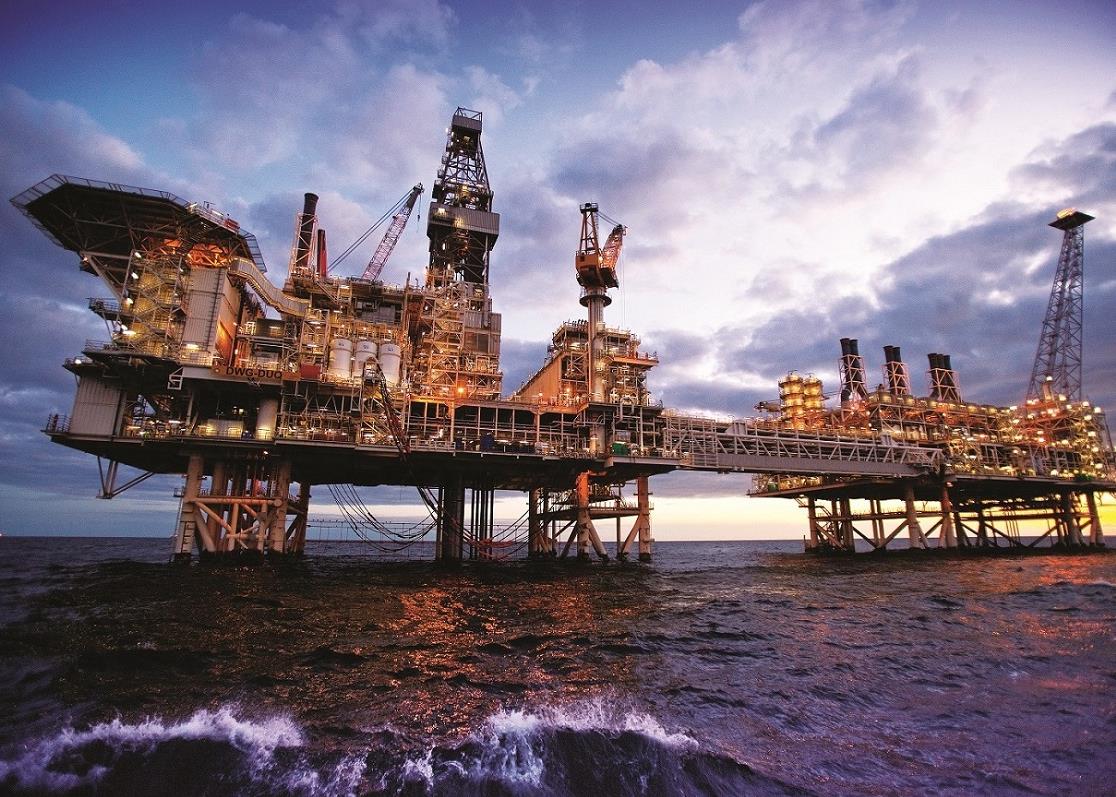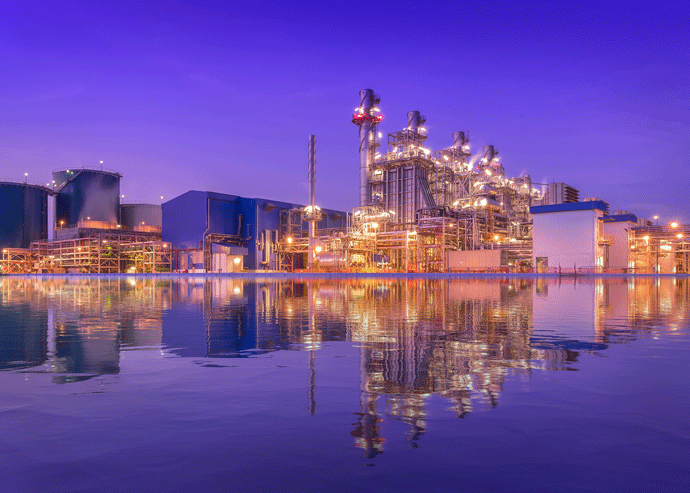
Although the emergence of the Islamic State in Iraq and Syria is threatening the stability of the Kurdish northern region, so far the situation has worked to the governments advantage
With all the economic and political turmoil hitting the oil sector in the Middle East and North Africa (Mena) region since the start of the decade, the steady rise of the semi-autonomous Kurdish northern region of Iraq appears to be a rare success story.
But ongoing disputes with the Baghdad government over budget payments and the emergence of jihadist militant group Islamic State in Iraq and Syria (Isis) have left Erbils fledgling energy industry on shaky ground.
Diverse sector
There are more than 30 foreign companies with exploration and production deals with the Kurdistan Regional Government (KRG), for activities ranging from early-stage exploration work to full-field developments.
Economic adviser to the KRGs Natural Resources Ministry, Deyary Rakhtawan, outlined the regions oil and gas development plans at the MEED Kurdistan Projects conference in June. He said crude production capacity stood at 350,000 barrels a day (b/d), and this was expected to be expanded to 1 million b/d by the end of 2015, with about 13 different projects contributing volumes, and increasing further to 2 million b/d by 2019.
| KRG production capacity* | |||
|---|---|---|---|
| Operator | Block | Current (b/d) | Projected by end of 2015 (b/d)** |
| Afren | Barda Rash | 6,000 | 50,000 |
| DNO | Tawke | 100,000 | Sep-10 |
| Genel Energy | Miran | 5,000 | Feb-82 |
| Gulf Keystone | Shaikhan | 20,000 | Sep-10 |
| HKN | Sarsang | | Nov-36 |
| Kalegran | Akri-Bijeel | | Nov-36 |
| KAR | Khurmala | 100,000 | Sep-10 |
| OMV | Bina Bawi | | 50,000 |
| Oryx | Hawler | | 25,000 |
| Talisman | Kurdamir & Topkhana | | 40,000+30,000 (70,000) |
| TAQA | Atrush | | 50,000 |
| TTOPCO | Taq Taq | 120,000 | 175,000 |
| Western Zagros | Garmian | | 50,000 |
| Total | 351,000 | 1,000,000 | |
| *=Oil and gas; b/d=Barrels a day; **=Excluding volumes reserved for domestic refining. Source: KRG Natural Resources Ministry | |||
The largest current producers are Norways DNO, the local Kar Group and TTOPCO a joint venture of Turkeys Genel Energy and China-owned Addax Petroleum which have a combined capacity of 320,000 b/d from their respective Tawke, Khurmala and Taq Taq fields.
The Natural Resources Ministry forecasts all three firms to add capacity next year along with several other companies. This leaves the region with a diverse oil production base, but with no clear dominant producer, unlike other markets in the Middle East.
Security issues
However, the growing security crisis in northern Iraq has seen several companies take precautionary measures, such as reducing operations and pulling staff out of oil fields, in recent weeks.
The Natural Resources Ministry issued a statement on 9 August saying some exploration activities near combat zones had been temporarily halted and staff relocated. The ministry added that oil production in the region was unaffected, and deliveries continued to domestic and export markets.
Indeed, the KRG is expecting that the producing companies will ramp up production in the coming weeks as ongoing export infrastructure improvements come online as planned, the ministry said.
Those taking precautionary measures in the region include US oil majors Chevron and ExxonMobil, Abu Dhabi National Energy Company (Taqa), Canadian groups Afren, Talisman Energy, Oryx and Western Zagros, and Genel Energy.
Breaking dependence
The outbreak of conflict came as the region was making progress with its aim of becoming an independent oil producer.
On 23 May, the KRG announced it had sold its first shipment of oil to the international market through a pipeline to the Turkish port of Ceyhan, sparking legal action from Baghdad against Turkey.
Erbil has the capacity to export about 100,000 b/d through the newly opened pipeline, which is in the process of being expanded to more than 200,000 b/d.
The KRG has accused Baghdad of withholding budget payments to the region estimated at $7bn by Erbil in June and sees oil exports as the route to achieving self-sufficiency from what it sees as a partisan and unreliable central government.
KRG spokesman Safeen Dizayee said in June that Erbils share of the national budget should amount to $17bn-$18bn, with the regional government typically receiving about 95 per cent of this from Baghdad.
Based on an oil price of $100 a barrel, the KRG would need to sell an average of about 500,000 b/d of crude to replace its share of the federal budget.
KRG Natural Resources Minister Ashti Hawrami told local TV station Rudaw on 19 August that the region had sold 7 million barrels of oil internationally since late May. He said the revenues had been deposited into the governments bank with the exception of two shipments.
Two tankers have been held up on the US Gulf Coast awaiting a decision over the KRGs right to sell oil to American buyers after Baghdad went to a local court in Texas to block the delivery.
Isis influence
The advance of Isis in northern Iraq has also created opportunities for the KRG, with Iraqi security forces abandoning oil-producing areas around Kirkuk, which the KRG has long claimed. This enabled Kurdish forces to seize control of the Bai Hassan and Kirkuk oil fields in mid-July.
The combined capacity of the two fields is about 465,000 b/d, representing more than 80 per cent of production capacity in non-KRG northern Iraq.
This effectively more than doubled Erbils capacity overnight and Hawrami has revealed plans to connect Kirkuk to the KRGs export pipeline to sell crude formerly pumped by Iraqi state-owned oil companies.
The Kirkuk-Ceyhan pipeline, which was responsible for most of Iraqs northern oil exports, was taken offline by insurgent attacks in March, leaving Baghdad with no export routes outside its southern hub of Basra, and further strengthening Erbils hand.
Gas gains
The KRG has also been making progress with its gas sector and plans to start exporting gas to Turkey via pipeline from 2016.
Gas demand in the region totals more than 10 billion cubic metres a year (cm/y), and is expected to increase to 17 billion cm/y by 2019.
It currently has an annual gas shortage of 6 billion cubic metres, but the ministry expects production to increase rapidly to supply a surplus by 2016.
By 2016, large volumes are expected to flow to Turkey and, as the next stage, we plan to export gas to Europe, said Rakhtawan.
Recent events in Ukraine increasingly make Kurdistan a better partner to the EU, he added, referencing the role of Russia as a major gas exporter to Europe.
The KRG territory could hold as much as 100-200 trillion cubic feet of gas, the equivalent of 2-3 per cent of global reserves, including the giant gas fields Miran and Bina Bawi, according to the ministry.
The region currently produces 300 million cubic feet a day (cf/d) from the Khor Mor field, supplying the Erbil and Chamchamal power plants.
Production also recently started at the Summail gas field, operated by DNO, supplying 90 million cf/d to the Duhok power plant. This will ramp up to 120 million cf/d.
We have entered a long-term, take-or-pay contract for the Duhok gas field, proving that the KRG can effectively monetise its gas assets, Rakhtawan said.
This proves that the KRG can effectively monetise its gas assets. The KRGs plan is to replace costly imported diesel with domestic gas supplies for power generation, he added.
Production sharing
So far, more than 40 production-sharing agreements (PSAs) have been signed by the KRG with international firms. Under these, exploration and production work is carried out by the IOC but the ownership of the petroleum resources remains with the regional government.
Typically, production-sharing contracts include a 10 per cent royalty and 43 per cent cost oil. The operators are also entitled to a share of the remaining revenues, usually referred to as profit oil or production sharing oil, with the rest going to the government.
The latest IOC to move from exploration to early production is the London-listed Gulf Keystone Petroleum, which has the PSA for the Shaikan oil field, situated about 85km northwest of Erbil.
In 2011, an independent review by Houston-based Dynamic Global Advisers estimated the Shaikan field contains 8 billion barrels of crude, of which 3 billion barrels are considered recoverable.
The discovery of the field was announced in January 2010. Since then, Gulf Keystone has pursued an aggressive drilling programme with three rigs to bring the field on stream.
Gulf Keystone has now completed the construction of its first production facility (PF-1) at the Shaikan field with a capacity of 20,000 b/d. PF-1 came into operation in the first half of the year, and is tied to the Shaikan-1, 3 and 4 producing wells, replacing the original extended well test (EWT) facility. PF-1 has a storage capacity of 50,000 barrels.
The company is now building the second phase facility (PF-2), which will be connected to the Shaikan-2, 5 and 10 wells, adding another 20,000 b/d. PF-2 will have a storage capacity of 100,000 barrels.
In June, the Natural Resources Ministry approved the Shaikan field development plan. It targets production of 40,000 b/d by the end of 2013, 150,000 b/d within three years and 250,000 b/d within five years.
Plateau production is expected to be between 175,000 b/d and 350,000 b/d for a period of 10 years, according to John Gerstenlauer, Gulf Keystones CEO. The reason for the wide spread is the field contains at least seven different reservoirs. Only five appraisal wells have been drilled so far, so the amount of reserves at the field could rise significantly.
Nervous stability
Gulf Keystone has invested a total of $780m in the northern Kurdish region of Iraq over the past six years. Most of this has been spent on the Shaikan development.
Shaikan is set to join the Tawke, Khurmala and Taq Taq fields as one of the regions largest oil production assets when its new capacity comes on stream in the coming years.
With the US joining the fight against Isis on the KRGs borders, and Erbil and Baghdad showing signs of cooperation to tackle the jihadists, there is some hope for a return of stability to its oil sector.
But the coming months will be a nervous time for oil companies, with Erbil continuing to face a security threat from Isis and questions over its political legitimacy from Baghdad.
Key fact
Erbil has the capacity to export about 100,000 b/d through its newly opened pipeline to Turkey
Source: MEED
You might also like...

Adnoc Offshore awards Upper Zakum contract
17 April 2024

Oman awards Batinah coastal road contract
17 April 2024

Oman appoints Al Khuwair Downtown project manager
17 April 2024
A MEED Subscription...
Subscribe or upgrade your current MEED.com package to support your strategic planning with the MENA region’s best source of business information. Proceed to our online shop below to find out more about the features in each package.









